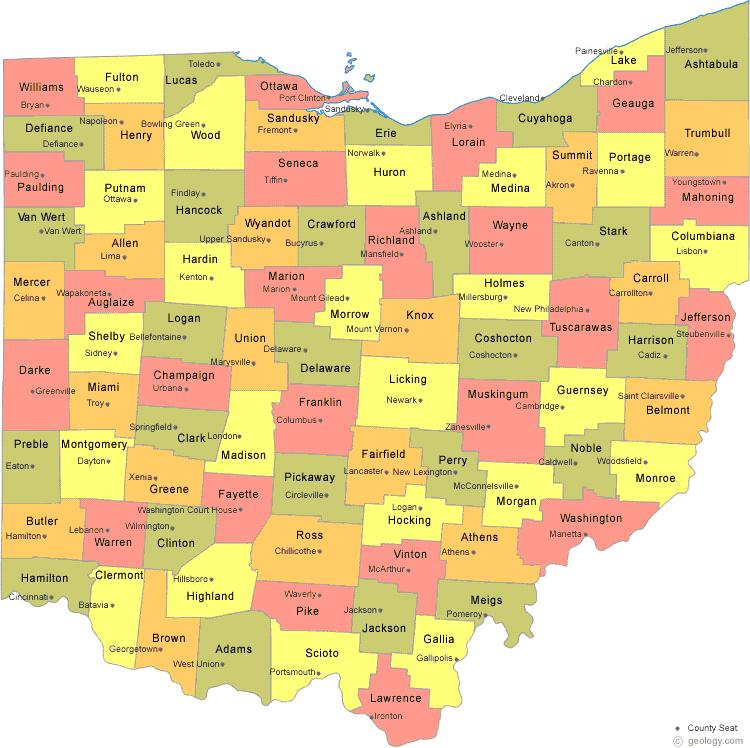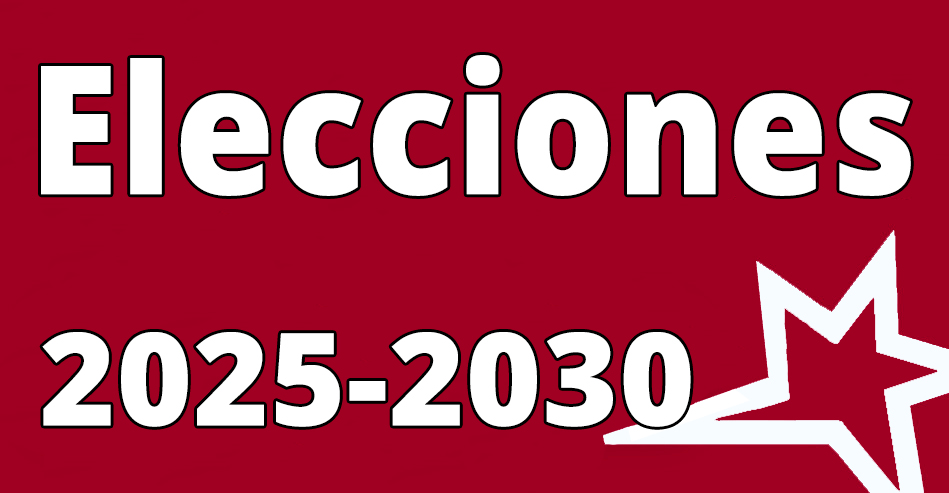ciudad de columbus / city of columbus
2019-2023Ohio


Haga click en el nombre del candidato para ver su anuncio político
Click on the name of the candidate to see his/her political ad
Elecciones Generales de Mitad de Período: Martes, 2 de noviembre de 2021
Midterm General Elections: Tuesday, November 2, 2021
Elecciones Generales de Mitad de Período: Martes, 7 de noviembre de 2023
Midterm General Elections: Tuesday, November 7, 2023
★ = en ejercicio/incumbent ♦ TL = No puede volver a correr por otro período / Not eligible to run for another term ♦ NR = No se presenta / Not running
Partidos Políticos/Political Parties:
CT = Constitucional/Constitutional ♦ C = Comunista/Communist ♦ D = Demócrata/Democrat ♦ G = Partido Verde/Green Party ♦ I = Independiente/Independent ♦ L = Libertario/Libertarian ♦ RE = Reformista/Reform ♦ R = Republicano/Republican ♦ S = Socialista/Socialist ♦ T = Té/Tea
Candidatos / Candidates
|
Columbus alcalde/mayor (4 year term) Salario Anual/Annual Salary: $172,981.00 |
|---|
| ★ Andrew J. Ginther (D) - Siguiente elección/Next election (2023) |
| [Candidato] - Siguiente elección/Next election (2023) |
| [Candidato] - Siguiente elección/Next election (2023) |
|
fiscal/prosecutor/prosecuting attorney (4 year term)
Salario Anual / Annual Salary: $168,126.00 |
| ★ Richard C. Pfeiffer (D) - Siguiente elección/Next election (2021) |
| [Candidato] - Siguiente elección/Next election (2021) |
| [Candidato] - Siguiente elección/Next election (2021) |
|
auditor /auditor (4 year term)
Salario Anual / Annual Salary: $164,126.00 |
| ★ Hugh J. Dorrian (D) - Siguiente elección/Next election (2021) |
| [Candidato] - Siguiente elección/Next election (2021) |
| [Candidato] - Siguiente elección/Next election (2021) |
|
columbus
Concejo municipal / city council (4 year term) Consejales/City Council Members: Salario Anual/Annual Salary: $53,585.00 Presidente del Consejo Municipal/City Council President: Salario Anual/Annual Salary: $63,259.00 |
| Electo por toda la ciudad / at large |
| ★ Mitchell J. Brown (D) - Siguiente elección/Next election (2021) |
| [Candidato] - Siguiente elección/Next election (2021) |
| [Candidato] - Siguiente elección/Next election (2021) |
| Electo por toda la ciudad / at large |
| ★ Shannon G. Hardin (D) - Siguiente elección/Next election (2021) |
| [Candidato] - Siguiente elección/Next election (2021) |
| [Candidato] - Siguiente elección/Next election (2021) |
| Electo por toda la ciudad / at large |
| ★ Priscilla Tyson (D) - Siguiente elección/Next election (2021) |
| [Candidato] - Siguiente elección/Next election (2021) |
| [Candidato] - Siguiente elección/Next election (2021) |
| Electo por toda la ciudad / at large |
| ★ Elizabeth C. Brown (D) - Siguiente elección/Next election (2023) |
| [Candidato] - Siguiente elección/Next election (2023) |
| [Candidato] - Siguiente elección/Next election (2023) |
| Electo por toda la ciudad / at large |
| ★ Rob Dorans (D) - Siguiente elección/Next election (2023) |
| [Candidato] - Siguiente elección/Next election (2023) |
| [Candidato] - Siguiente elección/Next election (2023) |
| Electo por toda la ciudad / at large |
| ★ Shayla D. Favor (D) - Siguiente elección/Next election (2023) |
| [Candidato] - Siguiente elección/Next election (2023) |
| [Candidato] - Siguiente elección/Next election (2023) |
| Electo por toda la ciudad / at large |
| ★ Emmanuel V. Remy (D) - Siguiente elección/Next election (2023) |
| [Candidato] - Siguiente elección/Next election (2023) |
| [Candidato] - Siguiente elección/Next election (2023) |
¿Qué significa FTC?
Significa “Período Completo que Comienza” (en una fecha determinada). Es la manera de denominar una plaza específica que se someterá a elección. Por ejemplo, si hay cuatro plazas que serán sometidas a elección en la Corte Municipal de la ciudad de Cleveland, no se presenta una larga lista de candidatos donde los cuatro primeros llenan esas plazas. En cambio, los candidatos corren contra sí para una plaza específica, y esas plazas específicas son denominadas de acuerdo a la fecha que comienza el período completo (FTC, por sus siglas en inglés).
¿Qué significa UTE?
Significa “Período No Electo Termina" (en una fecha determinada). Hay veces que un funcionario no termina su mandato o período, ya sea por renuncia, por muerte o porque fue electo a otra posición. En esos casos, se designa a otra persona como reemplazo, pero solamente hasta el siguiente período de elección regular. Si dicho mandato o período termina de todas maneras en la fecha de la siguiente elección regular, esa plaza será denominada como “Período Completo que Comienza” (FTC, por sus siglas en inglés) en una fecha determinada. Pero si el período de la plaza termina después de la siguiente lección regular, dicha plaza será denominada con la fecha en que termina el mandato o período (UTE, por sus siglas en inglés).
FTE (Full Term Expiring) = Término o Mandato Completo Termina (en una fecha determinada).
Funciones de las cortes municipales y las cortes de los condados
Las cortes municipales y las cortes de los condados tienen jurisdicción limitada y escuchan solamente casos civiles que están dentro de la competencia territorial de la corte, y solamente si la demanda no excede $15.000 dólares. (Nota: Jurisdicción se refiere a la facultad y autoridad que tiene una corte para escuchar un caso. Competencia territorial se refiere al área geográfica donde se lleva a cabo el juicio.) En los casos criminales, estas cortes están limitadas a escuchar casos de delitos menores, pero pueden celebrar una audiencia preliminar sobre delitos más graves si se determina que existe causa probable y razonable para detener al acusado. En tal situación, el caso es luego enviado al tribunal de primera instancia después de la audiencia preliminar. Las cortes municipales y las de los condados son creadas por ley estatal. Algunas cortes municipales tienen competencia territorial solamente dentro de sus límites incorporados; hay otras cortes municipales que tienen competencia fuera de sus límites incorporados, pero no en todo el condado; y hay algunas cortes municipales que tienen jurisdicción en todo el condado. Si existe un área dentro de un condado donde no haya ninguna corte municipal con jurisdicción, entonces se establece una corte de condado.
Todas las cortes municipales y todas las cortes de los condados cuentan con lo que se conoce como las Cortes de Reclamos Menores que son administradas por un magistrado. Estas cortes tienen una jurisdicción monetaria limitada (las demandas no pueden exceder los $3.000 dólares) y fueron establecidas para que las personas puedan representarse a sí mismas cuando la cantidad litigada no es grande y cuando el costo del litigio sería mayor que la cantidad que se reclama. Para obtener más información sobre las Cortes de Reclamos Menores (“Small Claims Courts,” póngase en contacto con Ohio Judicial Conference llamando al 614-387-9750 ó visite www.ohiojudges.org.
What does FTC mean?
It stands for "Full Term Commences," or the date that the term of office starts. It is really a way to name a particular seat that is up for election. When there are, for example, four seats up for election on the Cleveland Municipal Court, we don't see all the candidates' names in a long list where the top four vote-earners would win a seat on the court. Instead, we have candidates run against each other for a specific seat, and those specific seats are "named" by the date they start.
What does UTE mean?
"Unelected Term Expires." Sometimes, an elected official doesn't complete their term. (They may quit or die or get elected to another office.) Then, another person is appointed to fill that office, but only until the next regular election comes up. If the term would have been over by that next election anyway, then that office will have an FTC date. But, if the term for that office would not have been over, then that office is "named" by that date at which that term will end.
FTE = Full Term Expiring
What do municipal and county courts do?
Municipal and county courts have limited jurisdiction and can only hear civil cases that fall within that court's territorial area, and only if the claim does not exceed $15,000. (Note: Jurisdiction refers to the power and authority of a court to hear a case. Venue refers to the geographical area where a case is tried.) In criminal cases, these courts are limited to hearing misdemeanor offenses, but they can hold preliminary hearings in felony cases if it is determined that probable and reasonable cause exists to hold the defendant. In such a situation, the case is then transferred to the common pleas court following the preliminary hearing. The municipal and county courts are created by state statute. Some municipal courts may have geographical jurisdiction only within their corporate limits; others have jurisdiction outside corporate limits, but not countywide; still others have countywide jurisdiction. If there is an area within a county where no municipal court has jurisdiction, then a county court is established.
All municipal and county courts also have what is known as a small claims court, presided over by a magistrate. These courts have limited monetary jurisdiction (claims must not exceed $3,000) and are established to enable people to represent themselves when the amount in question is not large and the cost of litigation would be more than the value of the claim. For information about the division of municipal and county courts known as small claims court, contact the Ohio Judicial Conference at 614-387-9750 or visit www.ohiojudges.org.

